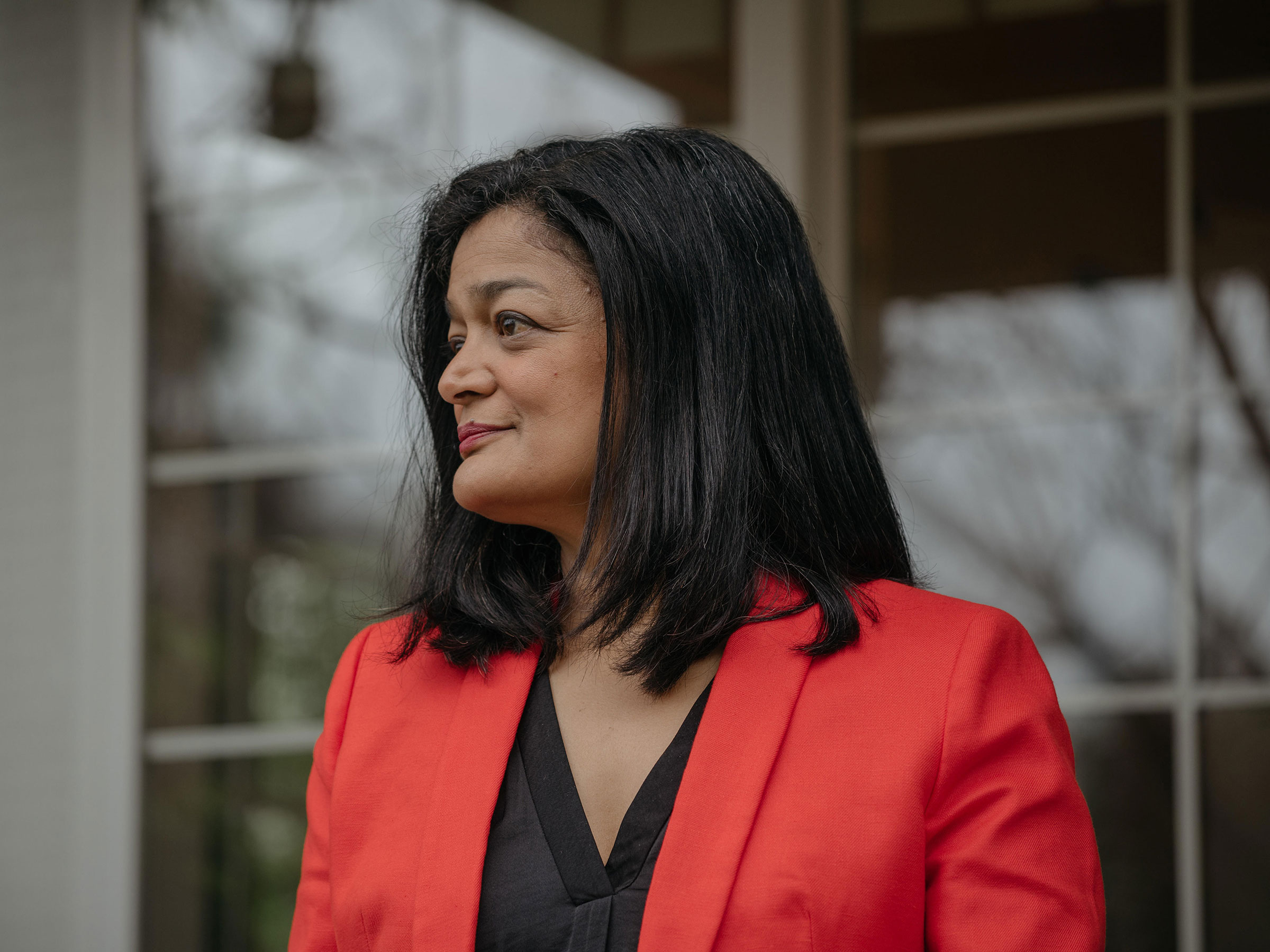
The research showing how climate change-related events disproportionately affect vulnerable communities is staggering. From New Orleans after Hurricane Katrina to New York City after Superstorm Sandy, extreme weather events tend to hit minority communities hardest. A 2019 study found that Black Americans living in communities hit by disasters over the study period lost nearly $20,000 in wealth—whereas their white counterparts gained more than $126,000 as investment flowed and communities rebuilt.
New legislation unveiled Tuesday by Washington Democratic Rep. Pramila Jayapal aims to turn that grim reality on its head with a slate of initiatives designed not only to mitigate the damage caused by climate-related disasters to vulnerable communities but also to turn the wave of investment that comes after a disaster into a bright spot for them.
“One of the things we really want to fix is how the resources get distributed: who gets the jobs, how do we make sure that those jobs are well paid, and that it becomes an opportunity to—wait for it—build back better in those communities,” says Jayapal.
Jayapal’s legislation, which draws on consultation with a range of environmental groups, contains a laundry list of policies with that aim in mind. The bill would establish a grant program for states, local governments and nonprofits to create jobs in “climate resilience” with a requirement that the recipients commit to employing a diverse workforce. These jobs include things like preemptive climate resilience work—think of retrofitting and restoration that helps soften the blow of a major disaster—as well as jobs that follow the storm, like clean up and debris removal. These industries already exist in some parts of the country, but worker protections are uneven. The bill’s text say that this grant program could create one million jobs annually that provide for worker safety and benefits.
The legislation would also provide funding for local governments to come up with their own resilience plans—and require them to address the disparate challenges faced by the most vulnerable communities. A new Office of Climate Resilience at the White House would serve as a hub for the federal government’s coordination with vulnerable communities.
Jayapal unveiled the bill Tuesday morning with 30 progressive Democrats as co-sponsors, but, with provisions like a loosening of immigration rules for climate resilience workers, it faces a tough road to pass as written in the politically divided Congress. Even so, Jayapal says elements of the 131-page bill can shape discussions on a range of other active policy discussions. The proposal could, for example, inform how Congress structures a Civilian Climate Corps, a proposed federal program to put Americans to work on climate projects that already was included in the climate and social spending bill that passed the House of Representatives in the fall. Other elements could help support the Biden Administration’s Justice40 initiative, which requires 40% of the benefits of federal climate investment to benefit disadvantaged communities. “This is actually laying out a vision,” she says.
That vision leaves much of the details to states, cities and communities—and that’s sort of the point. Activists have spent years calling on government to pay closer attention to environmental justice issues while also demanding solutions that empower local leaders.
Beyond the substance of the bill, the legislation would also deliver some political benefits, helping people connect the hundreds of billions of dollars that the Biden Administration hopes to spend on climate measures to the everyday lives of key constituents.
“If people feel like they’re never being considered, that frontline communities are never being considered, or that fossil fuel workers are never being considered, their lives and livelihoods are not being considered, we will lose them politically,” says Jayapal. “They will either go to another party, depending on where they are or they just won’t come out and vote.”
More Must-Reads from TIME
- Where Trump 2.0 Will Differ From 1.0
- How Elon Musk Became a Kingmaker
- The Power—And Limits—of Peer Support
- The 100 Must-Read Books of 2024
- Column: If Optimism Feels Ridiculous Now, Try Hope
- The Future of Climate Action Is Trade Policy
- FX’s Say Nothing Is the Must-Watch Political Thriller of 2024
- Merle Bombardieri Is Helping People Make the Baby Decision
Write to Justin Worland at justin.worland@time.com